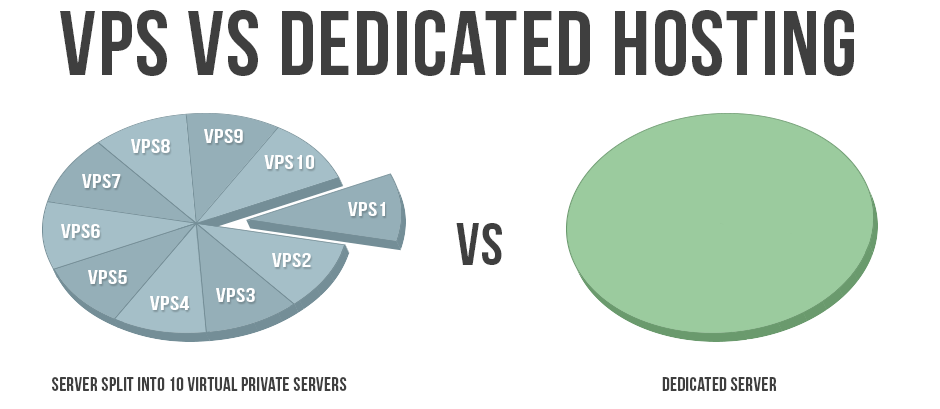If you’re trying to decide on the right server to host your website, you might find yourself overwhelmed by the tremendous amount of hosting choices on the market. It is important to choose a service that will best suit your needs, depending on the kind of site you intend to run as well as if you’ll require more bandwidth or data in the future. The most popular hosting plans offered by web host companies globally are shared, VPS and dedicated servers.
Whilst shared hosting is suitable for startups or those with less data going through their sites, it is also the lowest tier of web hosting in terms of performance, price and customisability. Therefore, in this blog, we’ll evaluate the benefits of VPS hosting and dedicated servers, who these plans are suitable for and how the two differ.
What is VPS Hosting?
VPS hosting involves hosting several websites on the same server. With VPS, you only own part of the server’s resources, whilst still enjoying the freedom of a private server. It is often considered an in-between of shared hosting and a dedicated server. In essence, VPS can be likened to creating a large server and partitioning it into several independent servers which appear as a standalone server. With a VPS server, one is allocated a certain amount of RAM, bandwidth and server space, thereby allowing for more power and flexibility.
VPS hosting provides users with root level access to the server whilst keeping the simplicity of a shared hosting account and avoiding the expense of a dedicated server. Since users have access to the same resources and features they would have in dedicated servers, they have the freedom to install any application and control those applications as needed. Migration within the same server is also fast and simple. Considering you are still technically sharing the hardware, you don’t have to be concerned about the physical server maintenance and security, as that is for your hosting company to worry about.
A Virtual Private Server is a practical solution for any website that has outgrown its shared hosting plan, a situation that is common with high-traffic websites. It’s ideal for small business owners, bloggers, web designers and anyone that needs the power and flexibility of a dedicated server but at a lower cost. Although a VPS is a much cheaper option than a dedicated server, if your needs expand, VPS might not have the resources for you to expand into, making a move to a dedicated server necessary.
What is a Dedicated Server?
Dedicated servers are just what you’d expect: servers dedicated to your sole use. These guarantee a certain amount of resources and ensure that you never have to worry about anyone else using up your server’s capabilities. A dedicated server is often the fastest and most powerful choice available. Whilst you may be tempted to look at the seemingly lower price of VPS Hosting and make your decision based on cost alone, you may be doing yourself a disservice when you realise that you need to spend more if your website expands.
Since you don’t have to share resources with other when you have a dedicated server, dedicated hosting offers an advantage in terms of speed and performance over VPS servers. Management of the system, such as ensuring the software is up to date and protecting the server from malware can be allocated to the hosting provider, and equally the user can carry out the task by themselves.
Dedicated hosting is ideal for websites whose traffic is increasing rapidly and is expected to continue doing so. It is also recommended for users that need to use a server with specific hardware configurations because it allows one to assemble their own physical server. Likewise, if you are looking to install special software or want to tune your hardware to run as efficiently as possible, dedicated is likely the right choice for you.
Naturally, each type of web hosting plan has its own benefits and limitations. When choosing a server for your website, it’s essential that you evaluate your needs and find the solution that meets all of your requirements.
Sam Martin works for Hosting.co.uk, the innovators of UK hosting. With over five years in the business, Sam is always looking to discover new ways of simplifying the customer journey. When he’s not busy learning about new ways to improve the hosting process, you’ll find Sam brushing up on the latest from the world of tech.



